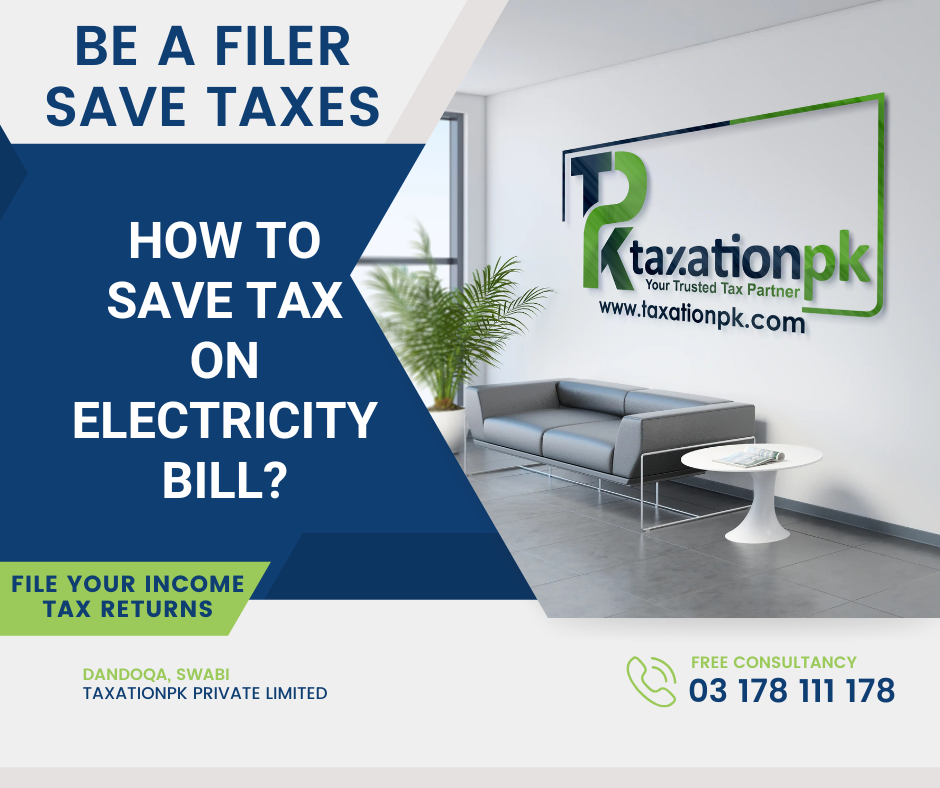Why Are Further Tax and Extra Tax Charged?
- Further Tax:
Further Tax is charged when a registered supplier sells to an unregistered buyer. This acts as a penalty to encourage tax registration compliance. For example, if your landlord is not registered for Sales Tax, you may incur Further Tax at 4% on electricity bills. - Extra Tax:
Extra Tax applies to certain situations, including commercial electricity usage by unregistered businesses. It can range between 3% to 5%, adding to your monthly operational expenses.
For businesses with high electricity consumption, these taxes can lead to significant financial costs.
Table of Contents
ToggleExample of Tax Costs on Electricity Bills
Consider a business with a monthly electricity bill of PKR 1,000,000:
- Further Tax (4%): PKR 40,000
- Extra Tax (5%): PKR 50,000
- Total Additional Tax: PKR 90,000
This can result in an annual extra tax burden of over PKR 1,000,000!
How to Eliminate Further Tax and Extra Tax
Step 1: Verify Your Sales Tax Registration
Ensure your business is registered for Sales Tax and compliant with return filing. Non-compliance can lead to penalties and tax surcharges.
Step 2: Review Your Rental Agreement and Electricity Bills
- Confirm if the electricity meter is registered in your landlord’s name.
- Check if your landlord is not registered for Sales Tax, which may trigger Further Tax.
Step 3: Write an Application to FBR
Draft an application to request exclusion from Further Tax and Extra Tax. Include:
- Your business NTN and Sales Tax Registration Number.
- Proof of compliance with all tax filings.
- Details of your rental agreement, including the property owner’s information.
- Copies of recent electricity bills showing Further Tax and Extra Tax charges.
Step 4: Submit the Application to FBR
Visit your relevant Regional Tax Office (RTO) and submit the application along with supporting documents. Request them to verify your case.
Outcome of the Process
Once the FBR verifies your details, they will issue a letter to the electricity supplier (e.g., LESCO, KE) stating:
- Your business is a registered Sales Tax payer.
- The property is rented, and the owner is responsible for the meter.
This letter directs the electricity supplier to remove Further Tax and Extra Tax from your bills, significantly reducing your operational costs.
Importance of Tax Savings
For businesses, even small percentage savings can lead to significant annual reductions in costs. By eliminating Further Tax and Extra Tax:
- A business can save up to 9% on electricity expenses.
- For high electricity usage businesses, this translates to substantial yearly savings.
Practical Advice
- Follow Up: The process may take time and require multiple follow-ups with FBR and electricity suppliers.
- Consult Experts: If you face difficulties, consider consulting a tax professional to streamline the procedure.
Tax savings directly impact your bottom line. A proactive approach to tax compliance and optimization ensures your business remains financially healthy.







